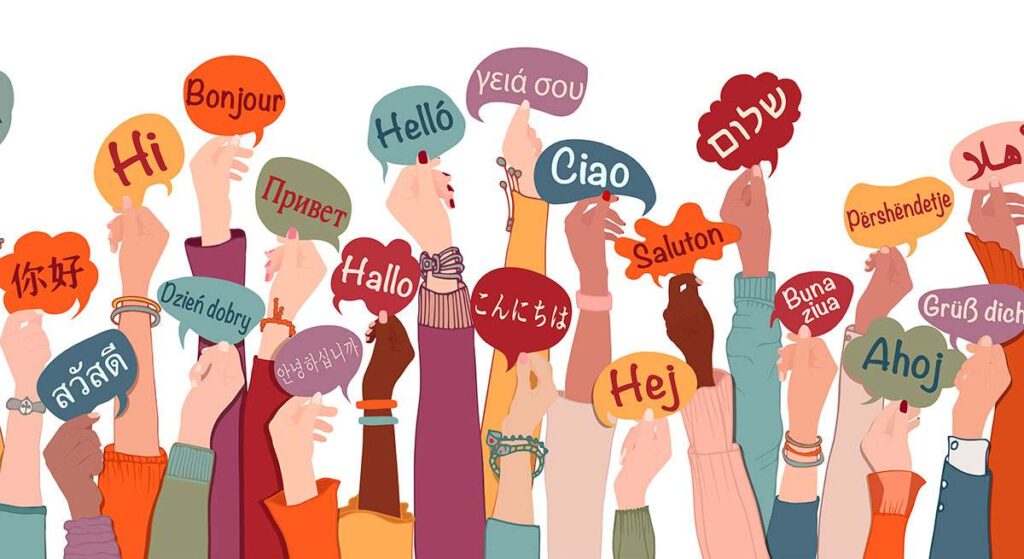In today’s globalized world, establishing international business connections is more important than ever. As a result, the demand for translations in various languages continues to rise. Translators and translation agencies are becoming more essential. These services cover a wide range of tasks, from simple document translations to more complex projects. In this article, we will explore the different types of translation services, their importance in various sectors, the challenges faced by the industry, and their future prospects.

Types of Translation Services
Oral translation – This type involves interpreting spoken language in real-time. It includes simultaneous, consecutive, and whispered interpreting.
Written translation – This is the most common form of translation. It involves changing text from one language to another while keeping the meaning, style, and context. Written translations can be applied to many types of documents, such as:
- Business documents (contracts, reports, presentations)
- Technical texts (user manuals, specifications)
- Legal documents (contracts, court papers)
- Medical documents (test results, prescriptions)
- Marketing texts (brochures, websites)
- Literary works (books, poems)
Certified translation – This is done by specialized translators and has legal validity. It is required for official documents such as birth certificates and diplomas.
Transcription and subtitling – This service involves turning speech into written text (transcription) and creating subtitles for movies or TV shows, often alongside translation.
Proofreading and editing – This service checks and corrects translated texts for language accuracy and style.
Tools Supporting Translation
To speed up the process, translators use Computer-Assisted Translation (CAT) tools. These tools help ensure that terms stay consistent throughout the document. They are especially useful for specialized documents like medical, legal, or technical texts. Translators also use online tools like Google Translate and DeepL to assist with translations.
Importance of Translation Services
Translation services are crucial in many aspects of life. Here are the main fields that rely on them:
- Business and trade – Translating contracts and documents helps companies communicate and expand into international markets.
- Law and administration – Legal translations are needed for international cases, agreements, and immigration.
- Culture and entertainment – Translating books and films spreads knowledge about different cultures and histories.
- Medicine and pharmacy – Medical translations allow access to the latest research and ensure patient safety through accurate instructions and manuals.
- Education and science – Scientific and academic translations promote the exchange of knowledge and collaboration.
- Tourism – The tourism industry uses translations for guides, brochures, and websites.
Challenges Facing the Translation Industry
The translation industry faces several challenges, including:
- Development of translation technologies – Advances in machine translation and AI are changing how translators work.
- Pricing pressure – There is more competition, and clients expect low prices, which can affect quality.
- Quality assurance – Maintaining high-quality work while meeting deadlines and keeping costs low is a challenge.
- Specialization – Translators need to keep learning and specializing in fields like medicine or law.
- Data security – Protecting clients’ sensitive information is becoming more important.
Future Prospects for Translation Services
Despite challenges, translation services have a bright future:
- Growing demand – International trade is expanding, so more translations are needed.
- New technologies – AI and machine translation are leading to models that combine human and machine work.
- Increasing specialization – The need for translators in specific fields like law and medicine continues to grow.
- Market expansion – Economic growth in many countries opens new opportunities for translators.
The Importance of Choosing a Professional Translation Agency
Hiring a professional translation agency ensures accurate, high-quality translations. These agencies follow strict quality checks to reduce errors and protect a company’s reputation. When selecting a translation agency, it is essential to consider their reputation, experience, specialization, and pricing.
Conclusion
Translation services are vital in today’s world. They help businesses and individuals communicate across cultures. While new technologies help with translation, the expertise of human translators remains essential for quality. As international exchange continues to grow, so will the demand for translation services. When choosing a translation provider, clients should consider factors like experience, specialization, and quality. High-quality translation services help companies succeed in global markets and bridge communication gaps between different cultures and languages.




